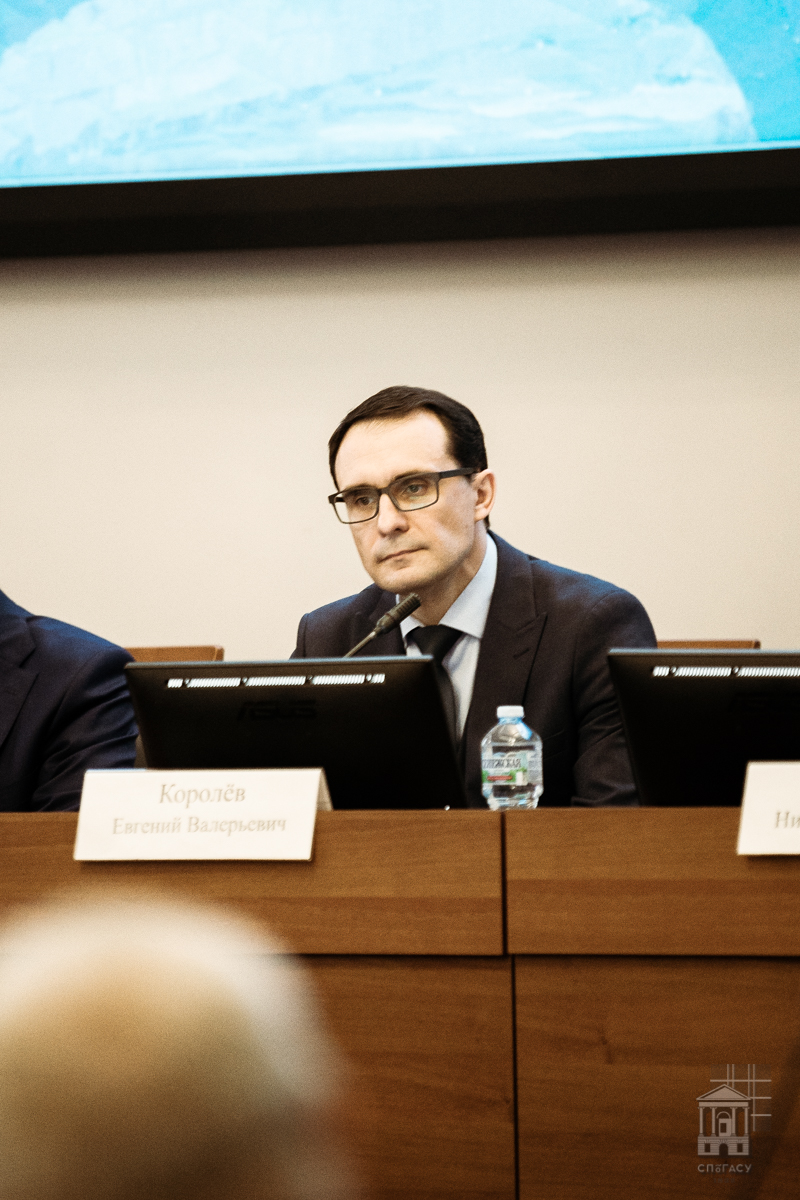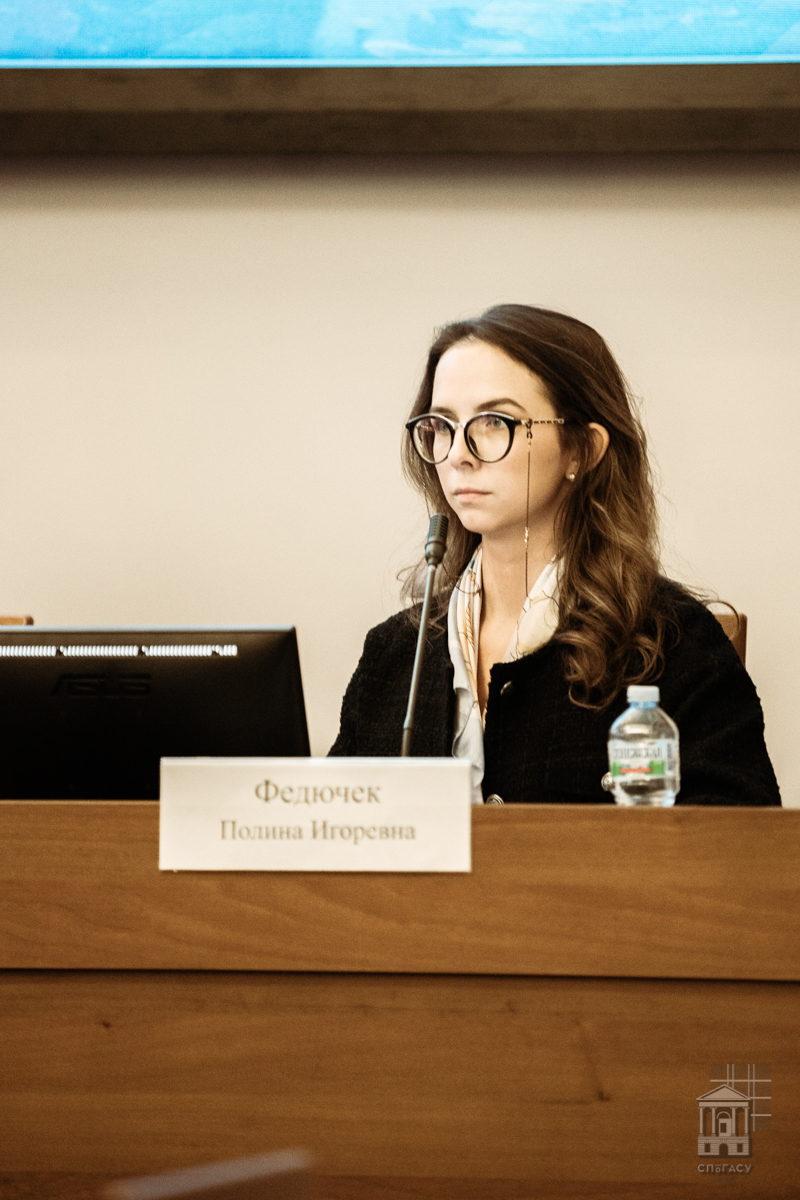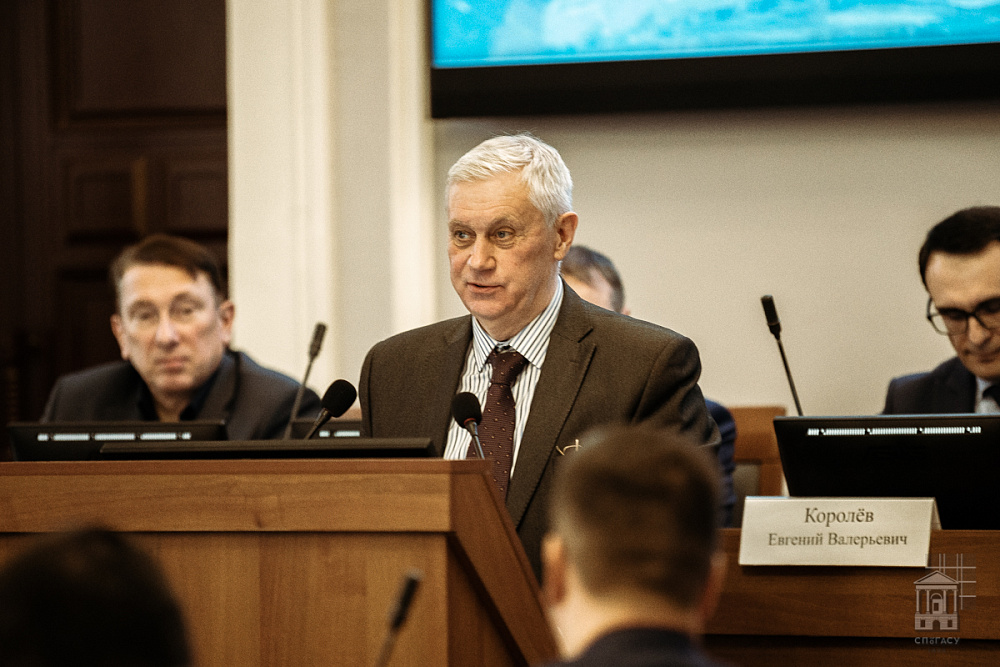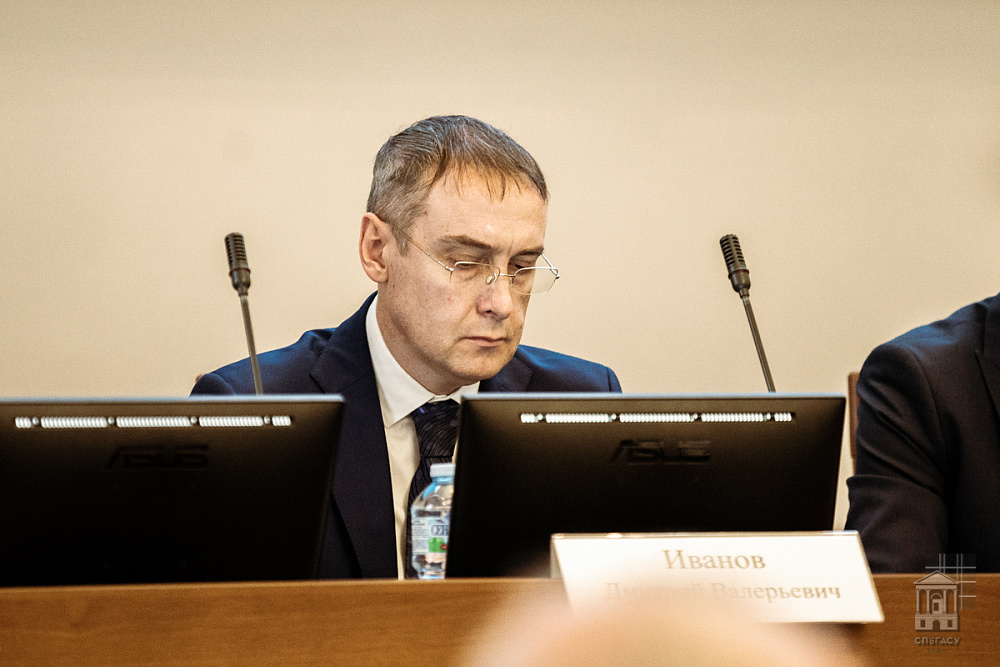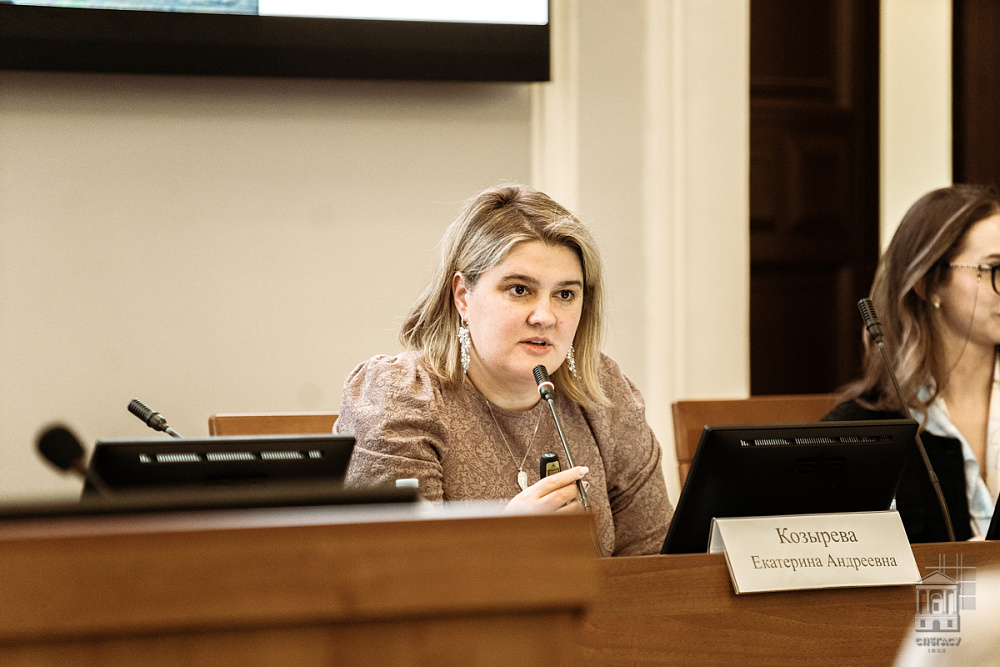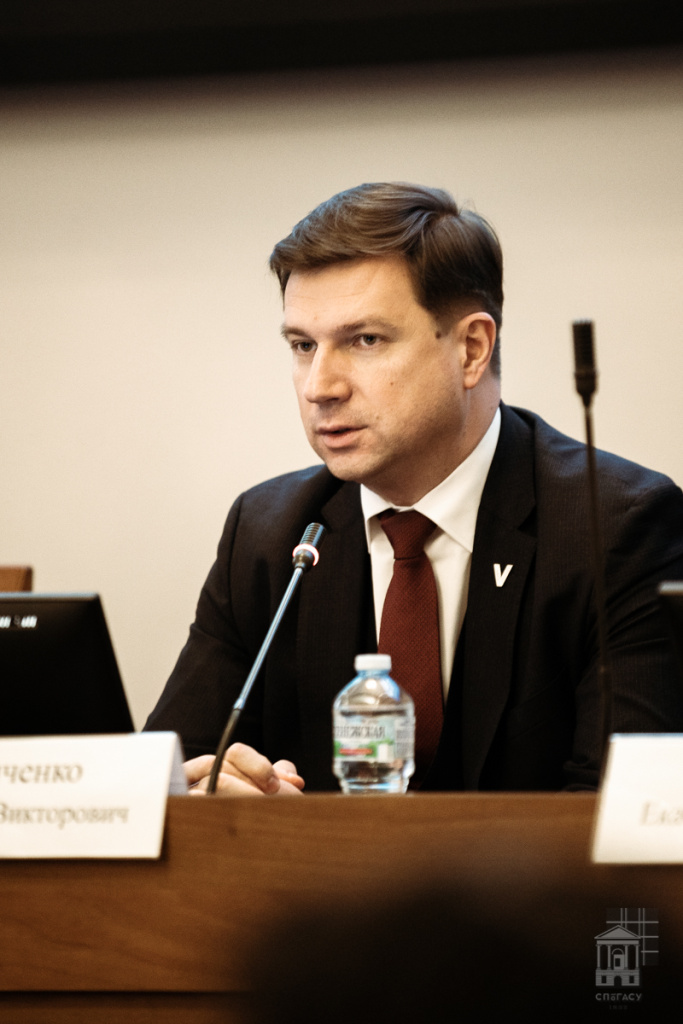 Nikolai Lynchenko
Nikolai Lynchenko
On 15 December, the St Petersburg State University of Architecture and Civil Engineering hosted a round table “Current issues and legal regulation of urban planning activities” with the participation of the Vice-Governor of St Petersburg Nikolai Lynchenko.
The event was organized by SPbGASU and the SRO OsnovaProekt Association. More than 80 people took part in it: SPbGASU master’s students, PhD students and teachers, working designers, lawyers, survey engineers.
The round table was moderated by Polina Fedyuchek, head of the development department of SRO OsnovaProekt, master's student at the SPbGASU Faculty of Forensics and Law in Construction and Transport. According to her, the purpose of the round table was to introduce future managers of the urban planning industry to the real sector of the construction economy.
Nikolai Lynchenko informed about current areas of urban planning activities that are in the focus of attention of the Government of St Petersburg. Among them is a catastrophic imbalance between the volume of residential development and social infrastructure, which is planned to be completely leveled out in 2024; violations of equity participation agreements; repair of facades of residential buildings - cultural heritage sites; road construction, etc. The Vice-Governor also noted that in the near future the law '“On Amendments to the Law of St Petersburg “On the Master Plan of St Petersburg”' will be signed.
The welcoming letter from the SPbGASU Rector, Evgeny Rybnov, to the round table participants was read by the Vice-Rector for Research, Evgeny Korolev: “Now the industry is on the verge of new qualitative changes, which will certainly transform it. “We will need specialists who possess both information modeling competencies and the traditions of civil engineers, which were laid down by the founders of the university and are carefully preserved and passed on from generation to generation.”.
Director of the SRO OsnovaProekt Association Sergey Levitsky, in his welcoming speech, emphasized the importance of quality education and expressed his readiness to interact with the university.
The report “Zones for the protection of cultural heritage sites as one of the aspects of urban planning regulation” was made by the head of the Department for the Preservation of the Historical Environment of the Committee for State Control, Use and Protection of Historical and Cultural Monuments of St Petersburg, Ekaterina Kozyreva. According to the speaker, in St Petersburg, as of 1 September, 2023, there were 10,290 cultural heritage objects (CHOs): 4,225 CHOs of federal significance, 3,530 of regional significance, and 2,535 newly identified ones. Every year up to 500 applications for the identification of cultural heritage sites are received. In addition, the historical environment of the Northern capital includes approximately 14,000 historical buildings. These buildings are not cultural heritage sites, but were built before 1917 and are located near such sites. Ekaterina Kozyreva is sure that the historical environment allows us to preserve the uniqueness of our city.
Cases on urban planning assessment when analyzing investment projects were presented by Lyudmila Zueva, General Director of Aurora Expert LLC.
A practicing lawyer in the field of self-regulation, Aleksey Staritsyn, spoke about protecting the rights of SROs when a regional operator goes to court to collect compensation payments from the compensation fund for securing contractual obligations.
Director of Tekhkor LLC, designer, expert of the Qualification Assessment Center of the Association "ABOK NORTH-WEST", Chairman of the Board of the Association "Self-regulatory organization Non-profit Partnership of Survey Engineers "GEOBALT"" Yury Borovik shared the view of a current expert on acute issues associated with passing an independent assessment qualifications by specialists in the field of architectural and construction design.
SPbGASU master's and PhD students raised issues such as legal support for the industry in the context of digital transformation, problems in the legal field of urban planning regulation, current issues related to development trends of single-industry towns in the Euro-Arctic region and many others.
Based on the results of the round table, a collection of scientific works of PhD students, master's students and young scientists, indexed by the RSCI, will be published.





